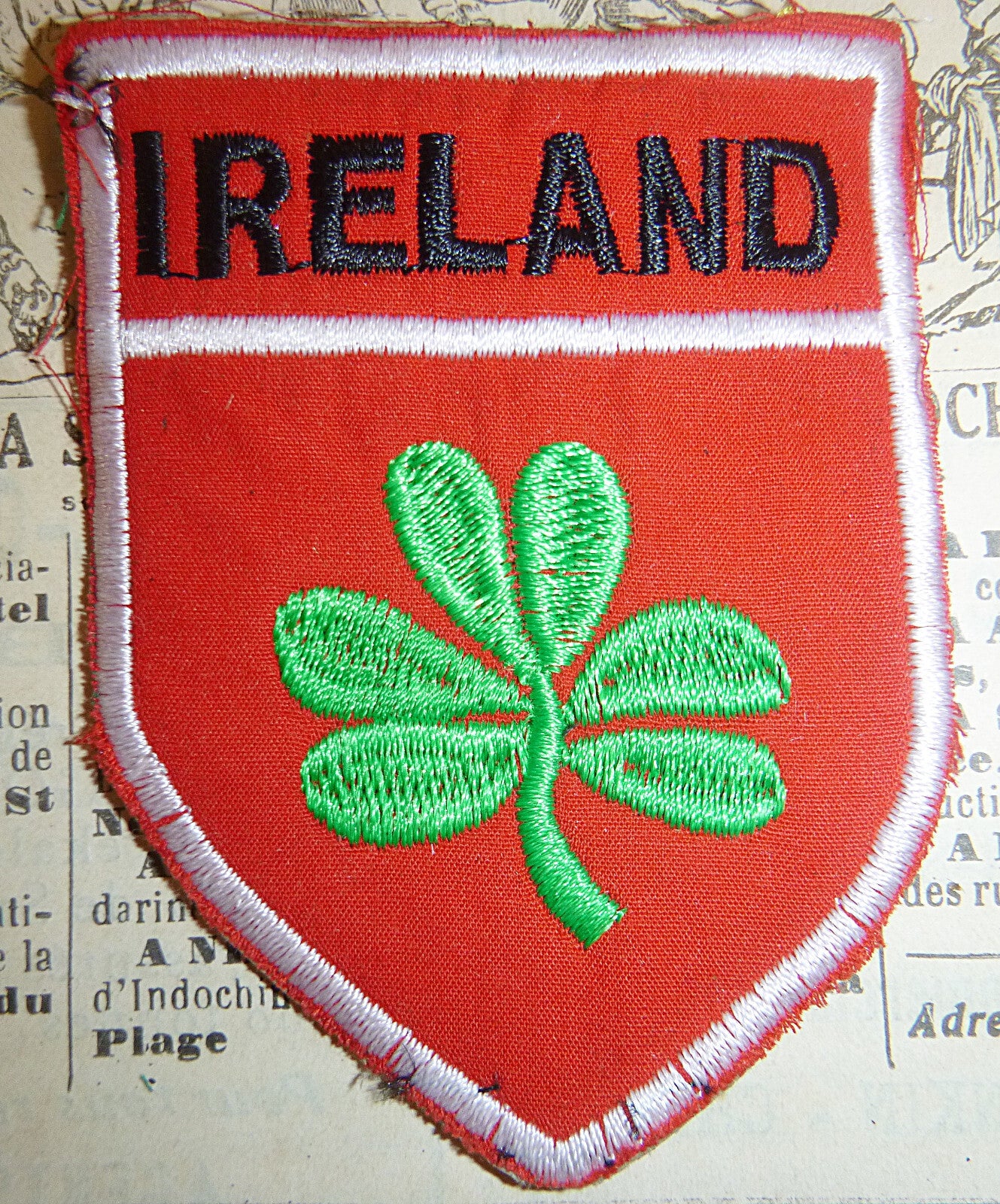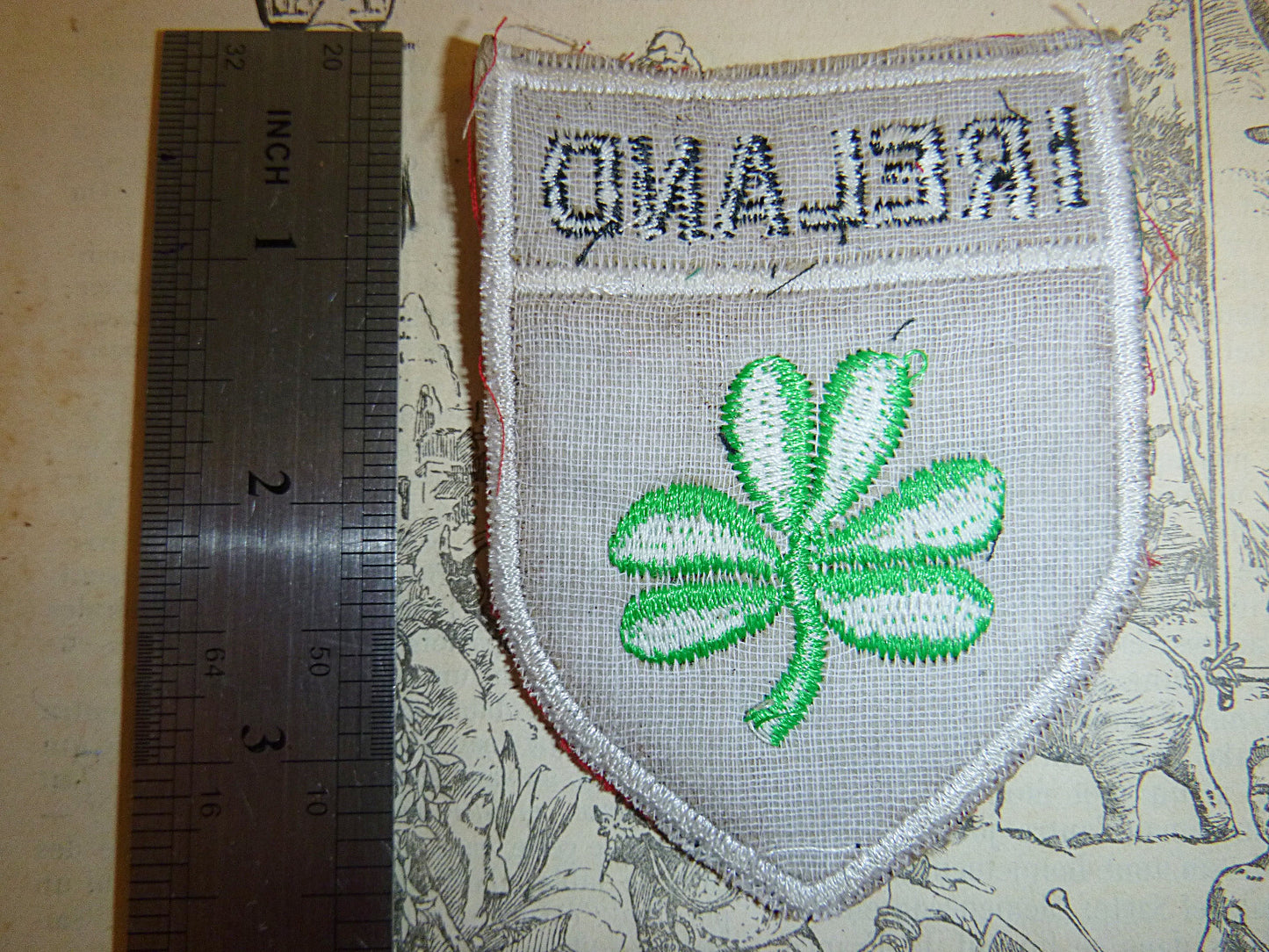depot1.com.au
Ireland - Vintage - Irish UN Patch - Belgian Congo - Battle of Jadotville - United Nations
Ireland - Vintage - Irish UN Patch - Belgian Congo - Battle of Jadotville - United Nations
Couldn't load pickup availability
IRELAND - Shamrock Patch
Ireland - United Nations - Belgian Congo
Battle of Jadotville - Belgian Congo
Measures - 3.4 x 2.6 inches (8.5 x 6 cms)
The Battle of Jadotville, also known as the Siege of Jadotville, occurred in September 1961 in the town of Jadotville (now Likasi) in the Katanga Province of the newly independent Republic of the Congo. This conflict involved Irish UN peacekeepers and Katangese forces during a period of political turmoil and secessionist movements in the Congo.
The Irish troops involved were part of the United Nations Operation in the Congo (ONUC). A company of Irish peacekeepers, designated as 'A' Company of the 35th Battalion, was stationed in Jadotville. The Katangese secessionist forces, led by Moise Tshombe, besieged the Irish contingent.
Despite being heavily outnumbered and lacking air and artillery support, the Irish soldiers held their ground for six days, from September 13 to September 19, 1961. They eventually ran out of water, food, and ammunition, leading to their surrender. The Irish soldiers were subsequently taken as prisoners of war by the Katangese forces.
The Battle of Jadotville has become a significant part of Irish military history. In recent years, there has been increased recognition and public awareness of the bravery and professionalism displayed by the Irish soldiers during the siege. The soldiers involved in the battle faced challenging circumstances and were later commended for their resilience in the face of overwhelming odds.
The event was depicted in the 2016 film "The Siege of Jadotville," which aimed to bring attention to the story and the courage of the Irish peacekeepers during this conflict.
The involvement of Irish troops in the United Nations Operation in the Congo (ONUC) during the 1960s is a significant part of Irish military history. ONUC was a peacekeeping mission established by the United Nations in 1960 to address the crisis that emerged after the Congo gained independence from Belgium.
Ireland contributed troops to ONUC, and they played a role in maintaining peace and stability during a tumultuous period. The Irish Defence Forces deployed a contingent known as the "A" Company, 35th Infantry Battalion, to the Congo. The Irish troops were involved in various peacekeeping and humanitarian efforts, such as:
-
Security and Peacekeeping: Irish troops were stationed in different regions of the Congo to help maintain law and order, protect civilians, and contribute to the overall peacekeeping mission.
-
Humanitarian Assistance: Irish soldiers were involved in providing humanitarian assistance, including medical care, to the local population.
-
Infrastructure Projects: Some Irish contingents engaged in infrastructure projects aimed at rebuilding and improving essential facilities in the wake of the conflict.
Ireland's contribution to ONUC reflected its commitment to United Nations peacekeeping efforts and its desire to contribute to global stability. The deployment to the Congo was a significant milestone for Ireland, marking one of its early involvements in international peacekeeping missions.
-
Congo Crisis (1960-1965): During the Congo Crisis in the early 1960s, which followed the country's independence from Belgium, there were reports of mercenaries operating in the region. Foreign mercenaries, including Europeans, were hired by different factions and governments to support their interests in the conflict. The Katanga region, in particular, witnessed the presence of foreign mercenaries.
-
-
Post-Cold War Conflicts: In the post-Cold War era, the DRC has experienced numerous conflicts, involving both internal and external actors. Mercenaries, including individuals from the DRC, have been reported to participate in these conflicts. These mercenaries were often hired by various factions and were involved in activities such as fighting, resource exploitation, and providing security services.
It's important to note that the use of mercenaries is generally condemned by the international community, and their activities often contribute to instability and human rights abuses in conflict zones. The involvement of mercenaries in conflicts is a complex and sensitive issue, and it has been a subject of international concern.
Share




